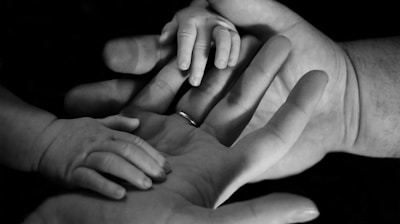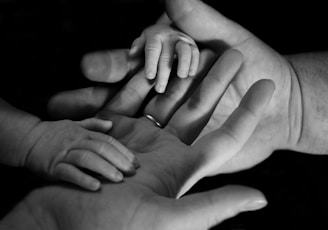Impact Development Foundation Inc.
From counseling and consulting to strategy development and implementation with support, our comprehensive services can help you thrive.
ABOUT Impact
Impact Counseling is a "bridge" to a healthier mental state and is designed as a solution for people seeking brief strategic mental health therapy that includes a Christian perspective. Our counseling platform has several advantages over the traditional face to face therapy sessions.
With Impact you receive a variety of ways to connect with your counselor including:
Zoom video, text message, and phone calls. Whatever is most comfortable to the client is comfortable with us.
More affordable rates than traditional therapy.
Flexibility to choose the best times for you, you can choose according to the available that best fits your situation.
Impact is the bridge between information and implementation of mental health support services. We are here to help you get from good to great in life.


Family Counseling
We provide affordable counseling mental health therapy services to families including children. We understand the importance of bringing the family unit together when dealing with crisis.
Marital and Pre-Marital Counseling
Looking to tie the knot or repair a knot thats tied? Look no further, we have services designed to help you understand your partner and discover better ways to communicate with them.






Adolescent Counseling
Children are precious and delicate as it relates to their emotions and feelings. We have a nurturing approach to counseling with children. We believe in allowing a child to feel safe at all times knowing their thoughts and feelings are valid.
Business Coaching
Learn how to build a business from the ground up. We give detail how to instructions on building a business that will attract investors and lenders.






Business Consulting
We work collaboratively with our business clients throughout the business design process to ensure their business vision is realized in the final product.
Group Life Coaching
Sign up for our Inner Circle group coaching designed to teach individuals how to heal internally and gain strength to be all they can be.
More About Therapy
What Kind of Therapy do I need?
According to an article from U.S. News. Multiple types of therapies exist, and they fall into various “schools” of thought, each with their own theories and techniques Just as there are "different types of medication, or classes of medications, for various kinds of depression,” one expert says, "there are a lot of different types of psychotherapies that people will use to treat a problem.”
Still, there are two primary philosophical models of psychotherapy: psychodynamic and cognitive/behavioral. Psychodynamic therapies focus on a patient’s unconscious process by having that person talk freely about his or her thoughts or feelings, and it aims to delve into past memories that might yield understanding of present problems. Subtypes of dynamic therapy include psychoanalysis – a long-term therapy that patients can engage in multiple times a week – to short-term psychodynamic therapy, which has a 20-session protocol.
Cognitive/behavioral therapies, on the other hand, are based on understanding one’s thought process or behaviors in the present and identifying how dysfunctional patterns in these areas may contribute to a larger life problem. By gaining awareness of these thought patterns, patients can work with therapists to change them.
Cognitive/behavioral therapies are more structured than psychodynamic therapies and tend to be shorter in duration, depending on the person’s needs.
A common form of treatment in this category is cognitive behavioral therapy, which blends cognitive and behavioral components. The cognitive side centers on how a person’s thoughts influence mood or actions, while the behavioral part focuses on his or her actions and learning strategies to modify problematic behaviors.
“One of the working assumptions in cognitive behavioral therapy is that faulty cognitions and [irrational] ways of thinking lead to negative feelings and maladaptive behavior”. If you modify the content and illogical irregularities of the flawed thought patterns, and teach people to think about the events of their life in a more rational way, negative feelings such as depression and anxiety will decrease. Meanwhile, changing one’s behavior and adapting positive coping mechanisms can decrease destructive habits and lead to an improvement in overall well-being.
Experts say cognitive behavioral therapy is the most widely researched psychotherapy, and it's effective for people with anxiety, depression, eating disorders, mood disorders, bipolar disorder, phobias and insomnia. Sessions are highly structured; patient and therapist work together as a team to identify and change faulty thoughts and actions, and patients are expected to complete “homework” assignments when they’re not in session – say, keeping a “thought record” of negative thoughts, their context and what triggered them.
Another type of cognitive/behavioral treatment is dialectical behavioral therapy. Dialectical behavioral therapy was originally used to treat severely suicidal individuals, or those with borderline personality disorder – a serious psychological illness characterized by unstable moods, behavior and relationships.
Dialectical behavioral therapy emphasizes self-acceptance and validation, and teaches patients coping skills that help them control their emotions and tolerate stressful situations. It also places an emphasis on mindfulness, or focusing on the present moment. Dialectical behavioral therapy is now used to treat a range of disorders characterized by emotional dysregulation, including eating disorders, substance abuse and some types of depression. Treatment typically includes weekly therapy sessions and once-a-week skill-based group therapy sessions, and lasts from six months to a year.
Finally, interpersonal therapy is used to treat major or low-grade depression, but doesn’t necessarily fall into any particular category. Instead, Binder says, it focuses on a patient’s relationships and looks for patterns across different interactions to identify maladaptive behaviors. “The idea is not that you're focusing on what's going on inside your head – although that's implicit – but really what’s going on between you and other people that is causing problems,” he says. By improving the way you relate to others, you’ll help treat your depression. Dialectical behavioral therapy and cognitive behavioral therapy also incorporate interpersonal skills training.
Therapy sessions can be delivered in more than one way. While therapy is often one-on-one, therapists can meet with couples, groups and families. Group therapy, for instance, makes sense if you want to be surrounded by like-minded, empathetic individuals experiencing similar struggles. It can also help patients understand how others view their actions or behaviors. “It’s great for character issues – things we do that are maybe offensive to others, and we don’t even know it,” she says. And couples and family therapy can help facilitate communication between family systems that are dealing with disruptive problems, relationship issues or emotional barriers. Treatment can last for six months to a year, or longer.
Additionally, some psychologists practice in an "eclectic way," Binder says. This refers to therapists who apply a combination of therapeutic approaches with the recognition that a patient might need a more individualized, tailored type of treatment.
However, you should choose a therapist based first and foremost on how good he or she is – no matter which types of therapy they’re trained in. “Therapy is essentially a particular kind of relationship between two people,” he says. “One of them has certain knowledge and skills, but it boils down to how well the two people click and how good the therapist is in applying whatever techniques he or she has.”
Need Help Paying for Counseling? Financial Help May be Available
FILL OUT THE FORM BELOW AND EXPLAIN YOUR SITUATION AND WE WILL REACH OUT TO YOU SHORTLY

